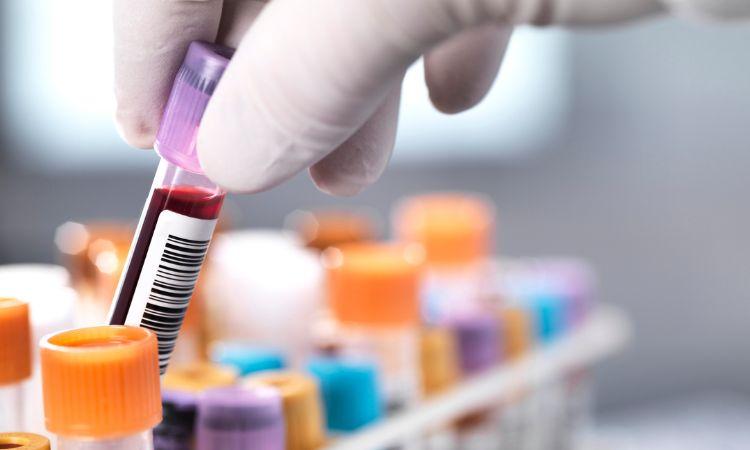Understanding the Biological Safety Testing Market: A Critical Pillar of Modern Healthcare and Industry

The Biological Safety Testing Market represents a cornerstone of modern healthcare, pharmaceutical research, and biomanufacturing. It encompasses a range of processes and techniques that ensure biologics, vaccines, gene therapies, and other biologically derived products are safe, effective, and free from contamination. In an era where biologics and advanced therapies are becoming central to healthcare innovation, biological safety testing plays an indispensable role in safeguarding patients, supporting regulatory compliance, and driving industry confidence.
Concept & Components
At its core, biological safety testing involves rigorous evaluation methods designed to detect potential contaminants, impurities, or harmful elements in biological products. These contaminants may include bacteria, viruses, mycoplasma, endotoxins, or residual host cell proteins that can compromise product quality.
The market is composed of several components, including:
-
Sterility Testing: Ensures that biological products are free from viable microorganisms.
-
Endotoxin Testing: Detects bacterial endotoxins that could cause adverse immune reactions.
-
Cell Line Authentication and Characterization: Confirms that the cell lines used in biopharmaceutical manufacturing are authentic and stable.
-
Adventitious Agent Testing: Identifies unintended viral or microbial contamination.
-
Mycoplasma Detection: Screens for mycoplasma, a common contaminant in cell culture.
-
Residual Host Contaminant Testing: Monitors for host cell proteins and DNA that may remain after production.
Together, these approaches form a safety net that ensures biological products meet the stringent standards set by regulatory authorities across the globe.
Key Importance
The Biological Safety Testing Market is gaining attention because it addresses one of the most pressing challenges in healthcare and biotechnology: ensuring patient safety while enabling rapid innovation. Biopharmaceuticals, vaccines, and gene therapies have immense potential but are also highly sensitive to contamination during development and production. A single lapse in safety testing could result in ineffective treatments, patient harm, or even large-scale product recalls.
For pharmaceutical companies, these tests are not just regulatory requirements—they are risk mitigation tools that protect brand integrity, reduce liability, and maintain trust with healthcare providers and patients. For researchers, safety testing ensures that experimental therapies can advance to clinical stages with confidence.
Growing Relevance
The growing relevance of biological safety testing stems from the expanding use of biologics and advanced therapies such as monoclonal antibodies, cell therapies, and gene editing. These innovative treatments hold promise for addressing chronic and rare diseases but require the highest safety standards.
Additionally, the rising complexity of biomanufacturing processes has heightened the demand for more precise and efficient testing solutions. As global healthcare systems place greater emphasis on quality, compliance, and patient-centric care, biological safety testing is no longer a back-end process—it is integrated throughout the entire development and manufacturing cycle.
Public awareness of drug safety, amplified by global health challenges and the rapid development of new vaccines and therapies, has further reinforced the critical need for robust biological safety testing frameworks.
Applications & Value
The value of the biological safety testing market extends across multiple sectors:
-
For Patients: It ensures that treatments and therapies are not only effective but also safe from harmful contaminants. This protects vulnerable populations who rely on advanced therapies for life-threatening conditions.
-
For Providers: Healthcare professionals can prescribe and administer biologics with confidence, knowing they meet rigorous safety standards.
-
For Industries: Biopharmaceutical companies benefit from smoother regulatory approvals, reduced production risks, and enhanced credibility in global markets. Contract research and manufacturing organizations (CROs and CMOs) also depend heavily on these testing processes to deliver compliant products to their clients.
Beyond healthcare, safety testing also finds applications in veterinary medicine, food safety, and environmental monitoring, making it a versatile and indispensable practice.
Future Insights
Looking ahead, the biological safety testing market is set to evolve with advancements in technology, automation, and molecular diagnostics. Emerging trends include the integration of artificial intelligence for predictive analytics, rapid testing platforms to accelerate time-to-market, and next-generation sequencing for more detailed detection of contaminants.
Regenerative medicine, personalized therapies, and mRNA-based treatments are also driving new demands for innovative testing solutions. With regulatory bodies becoming more stringent and patients more informed, the future will likely bring heightened standards and broader applications for biological safety testing.
The Biological Safety Testing Market stands as a vital pillar in ensuring the safety, efficacy, and credibility of biologics and advanced therapies. By bridging the gap between innovation and patient protection, it enables healthcare and industry stakeholders to deliver transformative solutions with confidence. As biotechnology continues to push boundaries, the importance of robust safety testing will only deepen, shaping a future where advanced treatments are both groundbreaking and uncompromisingly safe.
- Art
- Causes
- Crafts
- Dance
- Drinks
- Film
- Fitness
- Food
- Spiele
- Gardening
- Health
- Startseite
- Literature
- Music
- Networking
- Andere
- Party
- Religion
- Shopping
- Sports
- Theater
- Wellness


